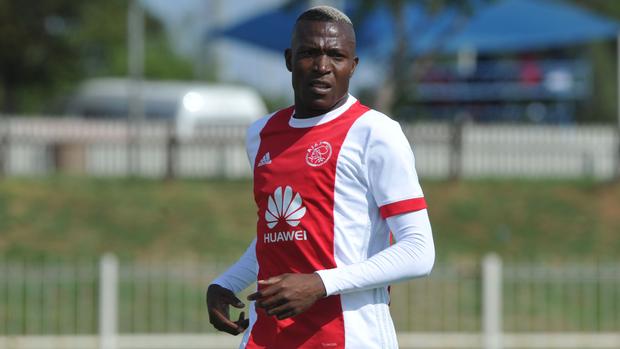Impact of typhoid on Gweru

Patrick Chitumba, Midlands Bureau Chief
FOR Mr Reign Mhlanga (23) of Mkoba 15 suburb in Gweru, the day he will never forget is August 1 when feeling thirsty, he went to his neighbour’s house and asked for a glass of water to drink.
However, the water he was drinking had a funny taste and had a suspicious colour but because of thirst, he went against his senses of smell and taste and drank the water.
A healthy sedentary adult living, according to Nestle waters, in a temperate climate should drink at least 1.5 litres of water per day.
“This level of water intake balances water loss and helps keep the body properly hydrated. The water you consume through food and drink follows a very precise route to arrive in your cells, of which it is a vital constituent.”
“After passing through the stomach, water enters the small intestine, where it is largely absorbed in the first sections, the duodenum and jejunum. The rest passes into the colon. It crosses the intestinal mucous membrane into the bloodstream, then into the interstitial tissues that make up the framework of every organ, to arrive in the cells,” reads part of an infomercial from Nestle waters website.
With this in mind, Mr Mhlanga knew he was drinking unsafe water but what could he do since he had no water at his house?
What could he do since Mkoba 15 is one of the suburbs in Gweru which have been facing perennial water shortages?
Because of the perennial water shortages, the city fathers sank a number of boreholes as a means or stop gap measure to address the water challenges and for years residents have been drinking it without any problems.
City of Gweru also made great strides by managing to pump water and have it reach the households in Mkoba 15, 18 and 20 for the first time in 10 years.
The new pressure on the water and sewer reticulation system resulted in burst sewer and water pipes with the Minister of Health and Child Care, Dr David Parirenyatwa, last week saying there could have been some seepages.
Town clerk, Ms Elizabeth Gwatipedza, in the meantime, blamed boreholes like the one in Mkoba 20 which was sunk very close to a sewer main hole.
She said the salmonella virus that causes typhoid had been detected in borehole water from Mkoba 15 suburb.
“Tests done have indicated that we have typhoid in the city and the salmonella virus that causes the disease has been detected in borehole water from Mkoba 15 suburb,” she said.
“We are therefore calling for assistance from the Government and other stakeholders so that we contain the situation.”
When the sewer main hole blocked, the raw sewage could be seen all around the borehole but the residents continued using water from the borehole.
Meanwhile, after drinking the contaminated water, Mr Mhlanga started feeling some stomach pains before his family rushed him to Gweru Provincial Hospital for treatment.
Speaking from his hospital bed to Dr Parirenyatwa who visited patients admitted at GPH, Mkoba 1 Clinic and Mkoba 13 Polyclinic Clinic to assess the impact of the outbreak last week, Mr Mhlanga said he was lucky because he had managed to get medical assistance fast.
“There was no water at home and I went and asked for water at my neighbour’s house. The water tasted funny and had a bad smell but I just drank it because I had no choice, I had to have water or I was going to faint,” he said.
Mr Siphosenkosi Dube of Mkoba 20 is one of the patients who said he started feeling sick after drinking tap water.As the number of residents seeking treatment surged, panic and fear gripped residents of Gweru.
Dr Parirenyatwa said tap water in the city was unsafe for human consumption amid unconfirmed reports suggesting that over 15 residents had died but officially the figure is eight.
“We are aware that there are a lot of illegal water connections here by residents who built houses and connected illegally to council water lines. That is also another source of contamination. So council must start tracing such illegal water connections. Gweru water and sewer pipes also run near each other and that must be addressed to avoid seepages,” he said.
Dr Parirenyatwa said some patients had also exhibited symptoms not related to typhoid – a sign that there were some harmful chemicals in Gweru water.
“We are not ruling out anything and therefore the need to be extra careful so as to leave no stone unturned. I want you to have a taskforce that meets every day as we move towards managing this outbreak,” he said.
Gweru typhoid taskforce coordinator, Dr Simon Nyadundu, said the death toll due to the typhoid outbreak had risen to eight as the cumulative total of suspected cases was over 1500.
“A cumulative total of 1506 suspected cases of typhoid have been reported in Gweru since July 20. Of these, six confirmed and zero are probable cases. Eight deaths reported since declaration of outbreak on August 6,” he said.
Dr Nyadundu said water sampling is on-going though they were facing challenges of inadequate equipment. He said Government has been providing water treatment pills to every household in the city.
Dr Nyadundu said they had also beefed up staff at council and Government health institutions.
“We have teams on the ground and we mobilised more staff from other districts in a bid to have enough workforce so that we curb this water borne disease as a matter of urgency,” he said.
The Midlands Minister of State, Cde Owen Ncube, has come out guns blazing against the city fathers attributing the outbreak and the subsequent loss of life to negligence by the city council.
Cde Ncube is accusing council of allegedly concealing the situation for about three weeks before August 6 when it decided to inform the Ministry of Health and Child Care about the water borne disease.
He said before the declaration of the typhoid situation as an outbreak, the local authority had kept the situation under wraps despite attending to over 200 suspected cases.
He said had the outbreak been reported earlier, the lost lives could have been saved.
“The city council should be held accountable and should foot the medical and funeral bills of patients and those who succumbed to typhoid. They knew about it but decided to keep quiet,” the Minister said.
After meeting Dr Parirenyatwa on his second visit to the city, Cde Ncube said the influx of vendors into the city centre was the major cause of the deadly disease.
“I gave vendors in town a 48-hour ultimatum to vacate the CBD until the typhoid outbreak situation has improved. I have, therefore, told the provincial JOC committee to intervene and move away vendors who will not have obeyed my ultimatum,” he said.
In the meantime, some people say they are using water treatment pills to purify their water while others like Ms Gwatipedza said they are still drinking tap water.
For Mr Mhlanga and Mr Dube, they are two of the thousands who fell sick after drinking water from the borehole and tap, a development Dr Parirenyatwa said indicated the need for further scrutiny of council tap and borehole water.
Dr Parirenyatwa has said water treatment tablets are the way to go.
Council has re-advertised a tender for the supply of a fourth water pump for Gwenhoro Dam in order to pump in excess of 60 megalitres of water a day for the growing population.
For the record, future generations will know that over eight people died from typhoid – a preventable disease – in the City of Progress.











Comments